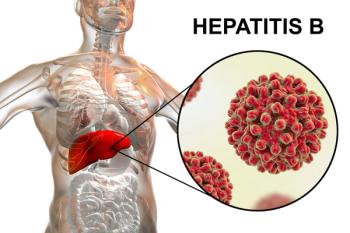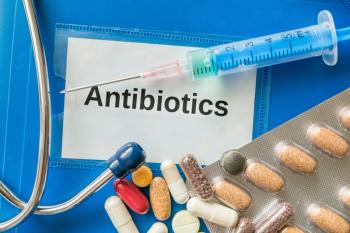
Pharmacies Can Help Expand HIV PrEP Awareness, Accessibility to Cut New Infections
Considering recent legal challenges to gender affirming and reproductive healthcare, pharmacists play an essential part to help marginalized populations have access to HIV prevention.
Groups beyond men having sex with men (MSM) need increased post-exposure prophylaxis (PrEP) awareness and improved accessibility to reduce new infections, according to a Lancet HIV editorial.1
With the UN Global AIDS Update revealing that HIV infection reduction goals are coming up short, more needs to be done to increase awareness and accessibility to prevent new infections. In 2022 there were 1.3 million new cases of HIV. There was a modest reduction of 200,000 cases in 2022 compared with 2021, but this falls short of the 370,000 case reduction goal for 2025.2
Reducing infections requires expanding PrEP education and accessibility beyond traditionally targeted groups like MSM, where PrEP has been quite successful in reducing infections, the editorial stated. Other populations are seeing a rise in infections, such as women. And while new PrEP method such as the dapivirine vaginal ring and the long-acting injectable cabotegravir are available, rates of PrEP usage are lower in women. “Information and choice are particularly important for women, who in a country such as the USA comprise 18% of new HIV diagnoses but represent only 8% of PrEP users,” the editorial noted.
Regulatory requirements in various countries also slow the new methods of PrEP uptake, such as in South Africa where the product packaging does not meet regulatory requirements. Supply and cost are also a barrier, and delays for the vaginal ring have also been caused by post-importation testing, the editors wrote.
Another barrier is political undermining of reproductive health matters throughout the world. According to the editorial, while the US was the first country that approved oral PrEP in 2012, in July the PrEP Coverage Act, which would provide zero-cost coverage for both insurance payers and establish a national grant program for the uninsured, was blocked by a Texas federal judge who said the act violates private companies’ religious freedom. “The ruling casts a grave shadow over Americans’ access to HIV prevention,” the editors wrote.
Pragna Patel, MD, MPH, chief medical officer and senior medical and science advisor in the Coronavirus and Other Respiratory Viruses Division (CORVD) at the Center for Disease Control and Prevention, spoke with Drug Topics® about PrEP awareness and accessibility.
She said that the dapivirine vaginal ring and long-acting injectable cabotegravir can help overcome stigmas and barriers for preventing HIV in women in places with high HIV rates where discretion is vital, such as sub-Saharan Africa.
“They are more discreet than carrying a bottle of pills that can jiggle in a bag which are hard to keep private,” she said. “In sections of the US, women and girls may have similar challenges, especially in conservative states where sex outside of marriage is frowned upon and women may also need to be discreet,” Patel noted.
She said patients need to be educated at all points of care, and pharmacists are uniquely positioned to reach women and adolescents in ways traditional providers are not.
Patel told Drug Topics® that pharmacists can increase awareness and accessibility for PrEP because the healthcare system is increasingly relying on them during drug shortages and regulatory challenges. “Point of care for sexually transmitted diseases is shifting more and more to pharmacies which can offer another opportunity for patients to learn about PrEP,” she said.
The pharmacist role is becoming even more important due to the burden on the healthcare system, Patel said. Considering recent legal challenges to gender affirming and reproductive healthcare, pharmacists play an essential part to help marginalized populations have access to HIV prevention, Patel noted.
“Pharmacists have a voice and a place to communicate on patients’ behalf,” Patel said. “They can advocate for patient care at the pharmacy where they can be engaged in ways providers aren’t. They may have better understanding about the need for PrEP, particularly for adolescents who may feel they don’t have the same level of privacy at a provider’s office.”
References
1. Bridging accessibility gaps in HIV prevention. Editorial. Lancet HIV. 2023;10(8):e485. doi:10.1016/S2352-3018(23)00180-7
2. Joint United Nations Programme on HIV/AIDS (UNAIDS). The path that ends AIDS: 2023 UNAIDS Global AIDS Update. Geneva: Joint United Nations Programme on HIV/AIDS, 2023.https://www.unaids.org/sites/default/files/media_asset/2023-unaids-global-aids-update_en.pdf . Accessed August 17, 2023.
Newsletter
Pharmacy practice is always changing. Stay ahead of the curve with the Drug Topics newsletter and get the latest drug information, industry trends, and patient care tips.























